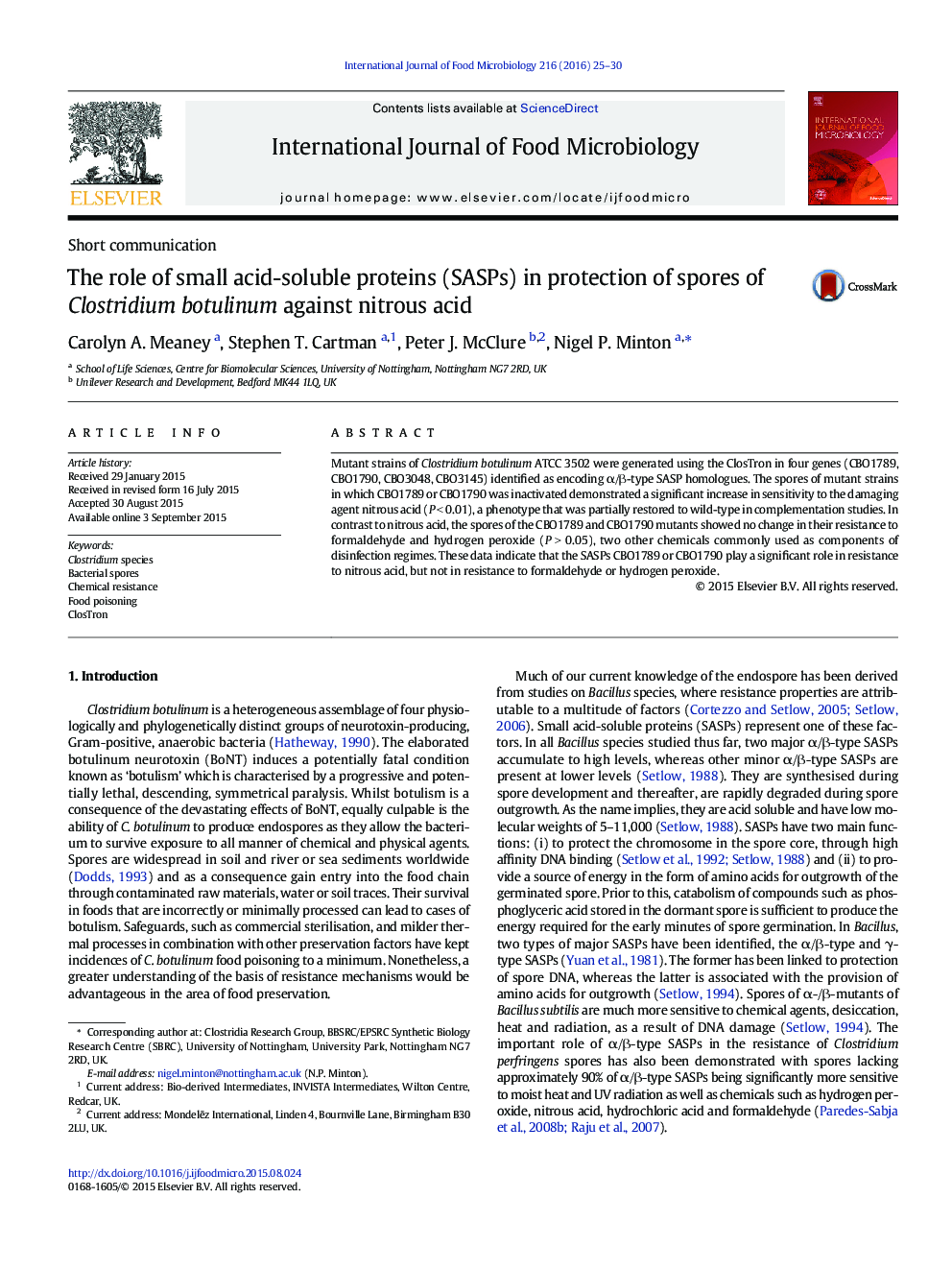| کد مقاله | کد نشریه | سال انتشار | مقاله انگلیسی | نسخه تمام متن |
|---|---|---|---|---|
| 4366434 | 1616567 | 2016 | 6 صفحه PDF | دانلود رایگان |

• Small acid soluble proteins (SASPs) contribute to high resistance properties of bacterial spores.
• Clostridium botulinum ATCC 3502 harbours four α/β-type SASPs: CBO1789, CBO1790, CBO3048, and CBO3145.
• Insertional mutants of each SASP gene were generated using the ClosTron.
• CBO1789 or CBO1790 plays a significant role in resistance to nitrous acid.
• A role for CBO1789 or CBO1790 was not evident in resistance to formaldehyde or hydrogen peroxide.
Mutant strains of Clostridium botulinum ATCC 3502 were generated using the ClosTron in four genes (CBO1789, CBO1790, CBO3048, CBO3145) identified as encoding α/β-type SASP homologues. The spores of mutant strains in which CBO1789 or CBO1790 was inactivated demonstrated a significant increase in sensitivity to the damaging agent nitrous acid (P < 0.01), a phenotype that was partially restored to wild-type in complementation studies. In contrast to nitrous acid, the spores of the CBO1789 and CBO1790 mutants showed no change in their resistance to formaldehyde and hydrogen peroxide (P > 0.05), two other chemicals commonly used as components of disinfection regimes. These data indicate that the SASPs CBO1789 or CBO1790 play a significant role in resistance to nitrous acid, but not in resistance to formaldehyde or hydrogen peroxide.
Journal: International Journal of Food Microbiology - Volume 216, 4 January 2016, Pages 25–30